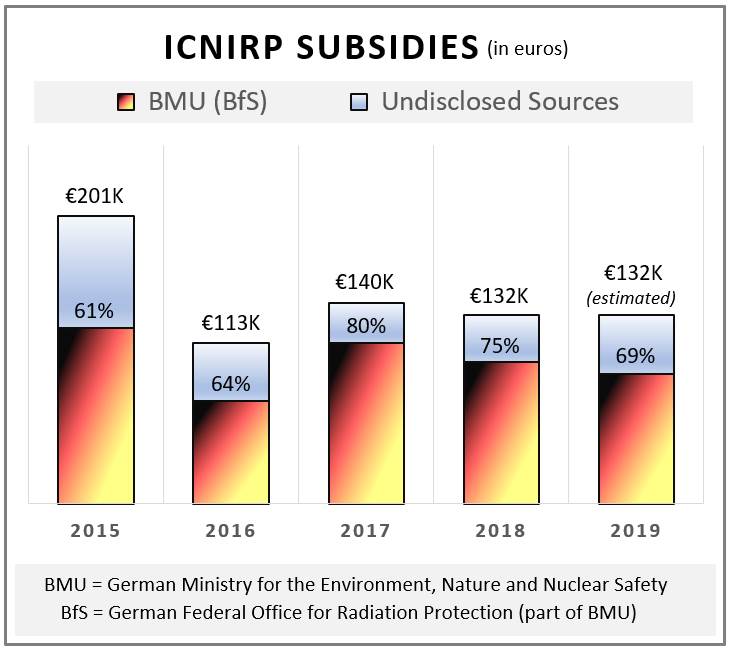ICNIRP’s Principal Patron: Germany
Provided 70-80% of Its Support in Each of Last Three Years
The German government is the main sponsor of ICNIRP, the International Commission for Non-Ionizing Radiation Protection.
The Federal Ministry for the Environment, Nature Conservation and Nuclear Safety (BMU), which is the bureaucratic parent of the Federal Office for Radiation Protection (BfS), has contributed 70-80% of ICNIRP’s annual income in each of the last three years. This does not include revenue from the sale of books and fees to attend workshops.
 Sources: BMU and ICNIRP
Sources: BMU and ICNIRP
The BMU/BfS has been known to support ICNIRP, but the extent of its funding has only now emerged.
Details of Germany’s support for ICNIRP was provided to Microwave News by the BMU following an information request.
ICNIRP also receives an “in-kind-contribution” from the BMU: “free” office space in the BfS premises in Oberschleiβheim, near Munich, according to Bastian Zimmermann, a BMU spokesperson.
Among the other agencies that support ICNIRP are: European Union Programme for Employment and Social Innovation “EaSI” (2014–2020), International Radiation Protection Association (IRPA), Australian Radiation Protection and Nuclear Safety Agency (ARPANSA) and New Zealand Ministry of Health.
ICNIRP, originally an offshoot of IRPA, was launched in 1992, at the initiative of Michael Repacholi, who at the time was with the Australian Radiation Laboratory (see MWN, J/A92, p.12). He served as ICNIRP’s first chairman until 1996, when he moved to become the head of the WHO EMF Project, which he also helped set up (see MWN, J/A96, p.14).
ICNIRP develops exposure guidelines which are the basis for many national standards, including Germany’s. It releases an annual report, but specifics about its finances are sketchy at best.
